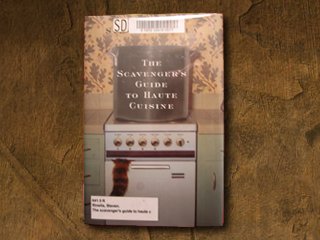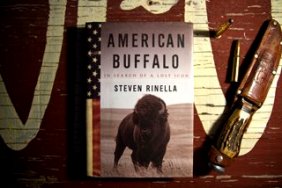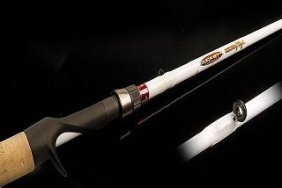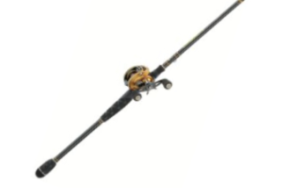 In between hunting seasons, many hunters like to keep their minds fresh and inspired in advance of next season. Over the years I’ve read all sorts of books about hunting, survival or conservation battles. But one contemporary publication has always stood out as a reminder of how versatile we as hunters could be when planning our hunts, and our meals.
In between hunting seasons, many hunters like to keep their minds fresh and inspired in advance of next season. Over the years I’ve read all sorts of books about hunting, survival or conservation battles. But one contemporary publication has always stood out as a reminder of how versatile we as hunters could be when planning our hunts, and our meals.
The Scavenger’s Guide to Haute Cuisine is a book by Michigan native Steven Rinella.
Some may recognize Rinella’s writing from Outside Magazine, Field and Stream or Peterson’s Hunting. He also published an incredible second book, American Buffalo. Rinella currently hosts a show on the Travel Channel called “The Wild Within” that discusses various ways to collect and cook wild game, which (as far as I can tell) was a direct spin off from his “Scavengers Guide.”
Published in 2006, The Scavenger’s Guide to Haute Cuisine is the story of Rinella’s discovery of Le Guide culinaire, a 1903 cookbook by Georges Auguste Escoffier. Escoffier was oce called “The king of chefs andchef of kings” and his book is considered by most to be the bible of French cuisine. In it, Rinella finds inspiration for a variety of dishes not usually found on the tables of most Americans, or even contemporary French for that matter! Le Guide provides Rinella with the proper techniques for dispatching and breaking down snapping turtle, preparing and stuffing antelope bladders, smoking eel, roasting squab, baking songbird pie and dozens of other preparations for seldom consumed game.
Inspired by his discovery, Rinella decides to develop a forty-five course meal to be held over three days exclusively using recipes from Le Guide. Furthermore, he elects to source the ingredients himself, and with the help of experts in various fields.
Through his travels around the United States, Rinella solicits the help of a bluebird lover in Iowa for ways to trap English sparrows for use in his songbird pie. He learns how to build eel weirs on the Delaware river and even learns to raise pigeons from eggs found in an alley in Missoula, Montana. He sources javelina in California, and pronghorn in Montana for his feast while managing to bring the reader back to familiar places in their own history of preparing wild game.
While this may be professional suicide to admit as a hunting writer, I’ll proudly share that for nearly two years I made concerted efforts to be largely vegetarian. More accurately, I swore off buying meat from stores. The only meat I ate is what I killed or caught, and as a working man living in the city, that meant enduring more meat free weeks than I’d have liked. Often I could be found begging my time-blessed friends to let me clean out their freezers in advance of the next whitetail season. But more often that not, it was rabbit food for me.
It was during this time when I stumbled across Rinella’s book. In reading it, I felt a sense of validation for my dietary choices and could identify with his sensibilities and overarching point. The Scavenger’s Guide is an excellent tale of a man on a mission, a man in the outdoors, and a man making his own way in the world. But it is also, as Rinella outlines specifically in the book, it is a commentary on human beings’ continuous separation from their food sources. Most people now buy food that is unidentifiable as it’s original form, much less collect it from it’s source themselves. So upon reading The Scavenger’s Guide, I found myself a little more driven to make that time and effort to get that game to the table. As if my gaunt physique and hunger pangs weren’t motivation enough. But perhaps more importantly at the time, I found renewed confidence that my otherwise “hippy-minded” experiment was firmly rooted in the tenants of what it means to be a outdoorsman.
Social commentary and personal validation aside, The Scavenger’s Guide is an entertaining, well crafted and inspirational read for any outdoorsman. It is an especially great read for those of us who take pride in unique preparation of our harvests and the history of hunting not only as a “sport” (a term I am often at odds with) but also as a means for sustenance and the addition of variety in our yearly dinners. While sometimes unusual, the recipes that Rinella chooses in his book have also been inspirational to improving my own wild game preparations. Although I’ll probably continue to leave the Antelope Kidney Pudding to more skilled, and courageous cooks.








